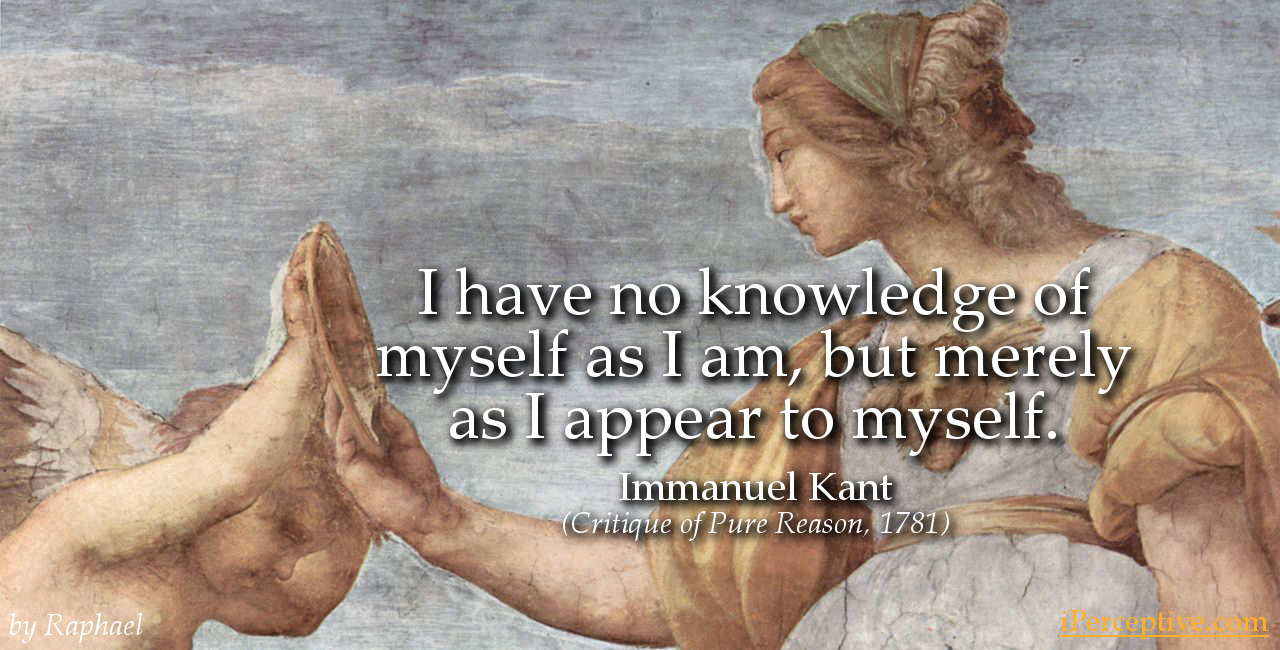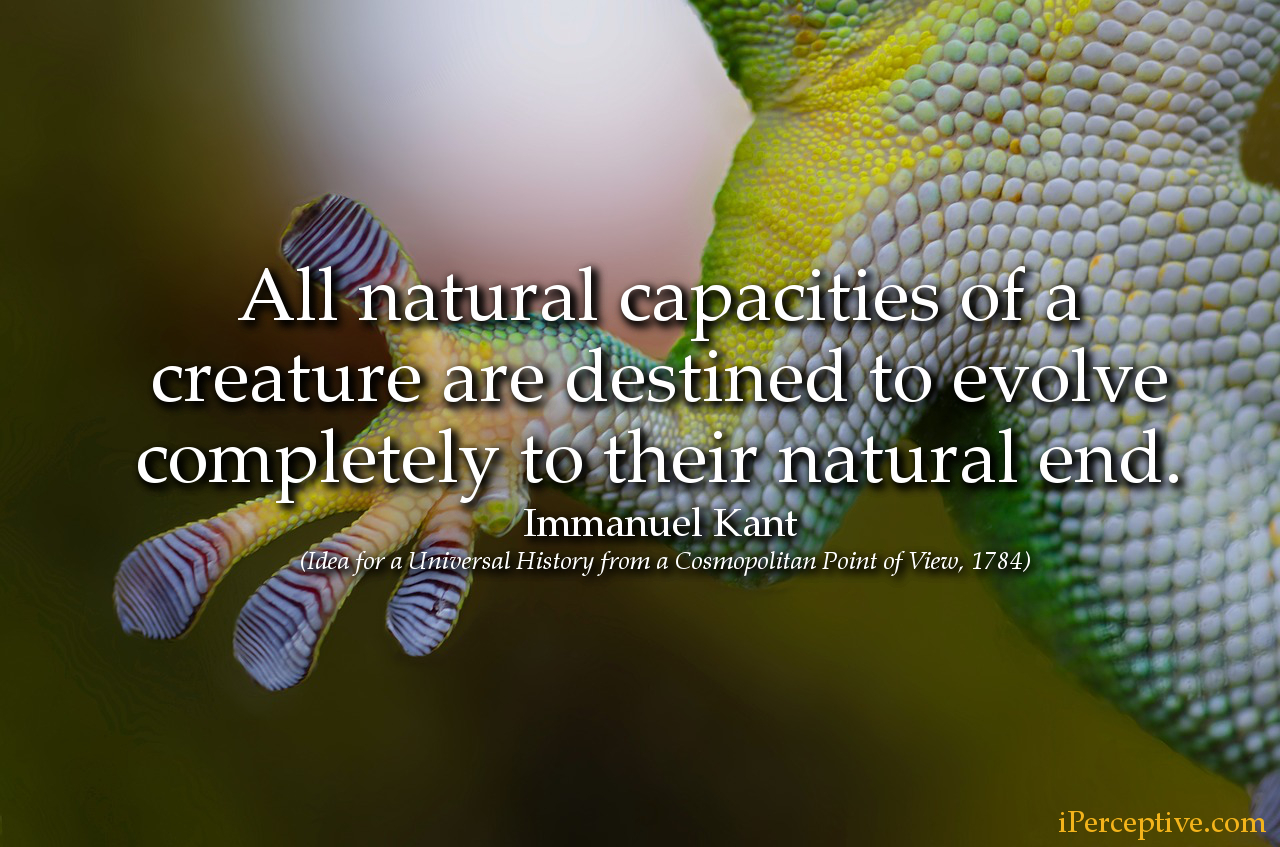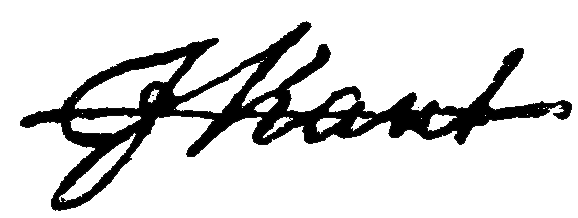Immanuel Kant Quotes

Metaphysics is a dark ocean without shores or lighthouse, strewn with many a philosophic wreck.
Immanuel Kant
(Quoted in The Story of Philosophy, 1961)
Ingratitude is the essence of vileness.
The death of dogma is the birth of morality.
Look closely. The beautiful may be small.
Nothing is divine but what is agreeable to reason.
Man must be disciplined, for he is by nature raw and wild.
We are not rich by what we possess but by what we can do without.
Science is organized knowledge. Wisdom is organized life.

I have no knowledge of myself as I am, but merely as I appear to myself.
Two things awe me most, the starry sky above me and the moral law within me.
Reason should investigate its own parameters before declaring its omniscience.
Nature does nothing in vain, and in the use of means to her goals she is not prodigal.
By a lie a man throws away and, as it were, annihilates his dignity as a man.
Nature even in chaos cannot proceed otherwise than regularly and according to order.
It is beyond a doubt that all our knowledge that begins with experience.
If man makes himself a worm he must not complain when he is trodden on.
Experience without theory is blind, but theory without experience is mere intellectual play.
Happiness is not an ideal of reason, but of imagination.
Always recognize that human individuals are ends, and do not use them as means to your end.
The public use of a man's reason must be free at all times, and this alone can bring enlightenment among men...
All human knowledge begins with intuitions, proceeds from thence to concepts, and ends with ideas.

All natural capacities of a creature are destined to evolve completely to their natural end.
From such crooked wood as man is made of, nothing perfectly straight can be built.
In law a man is guilty when he violates the rights of others. In ethics he is guilty if he only thinks of doing so.
But although all our knowledge begins with experience, it does not follow that it arises from experience.
Have patience awhile; slanders are not long-lived. Truth is the child of time; erelong she shall appear to vindicate thee.
Morality is not the doctrine of how we may make ourselves happy, but how we may make ourselves worthy of happiness.
It is not necessary that whilst I live I live happily; but it is necessary that so long as I live I should live honourably.
He who is cruel to animals becomes hard also in his dealings with men. We can judge the heart of a man by his treatment of animals.
All our knowledge begins with the senses, proceeds then to the understanding, and ends with reason. There is nothing higher than reason.
We find that the more a cultivated reason devotes itself to the aim of enjoying life and happiness, the further does man get away from true contentment.
Seek not the favor of the multitude; it is seldom got by honest and lawful means. But seek the testimony of few; and number not voices, but weigh them.
The ideal of the supreme being is nothing but a regulative principle of reason which directs us to look upon all connection in the world as if it originated from an all-sufficient necessary cause.
May you live your life as if the maxim of your actions were to become universal law.
Variant: Live your life as though your every act were to become a universal law.
Variant: So act that your principle of action might safely be made a law for the whole world.
Through laziness and cowardice a large part of mankind, even after nature has freed them from alien guidance, gladly remain immature.
Man's greatest concern is to know how he shall properly fill his place in the universe and correctly understand what he must be in order to be a man.
The inscrutable wisdom through which we exist is not less worthy of veneration in respect to what it denies us than in respect to what it has granted.
Thoughts without content are empty, intuitions without concepts are blind... The understanding can intuit nothing, the senses can think nothing. Only through their union can knowledge arise.
Human reason has this peculiar fate that in one species of its knowledge it is burdened by questions which, as prescribed by the very nature of reason itself, it is not able to ignore, but which, as transcending all its powers, it is also not able to answer.
The history of the human race, viewed as a whole may be regarded as the realization of a hidden plan of nature to bring about a political constitution, internally, and for this purpose, also externally perfect, as the only state in which all the capacities implanted by her in mankind can be fully developed.
Reason in a creature is a faculty of widening the rules and purposes of the use of all its powers far beyond natural instinct; it acknowledges no limits to its projects. Reason itself does not work instinctively, but requires trial, practice, and instruction in order gradually to progress from one level of insight to another.
Enlightenment is man's emergence from his self-incurred immaturity. Immaturity is the inability to use one's own understanding without the guidance of another. This immaturity is self-incurred if its cause is not lack of understanding, but lack of resolution and courage to use it without the guidance of another. The motto of enlightenment is therefore: Sapere aude! Have courage to use your ownunderstanding!
Immanuel Kant Top Quotes


